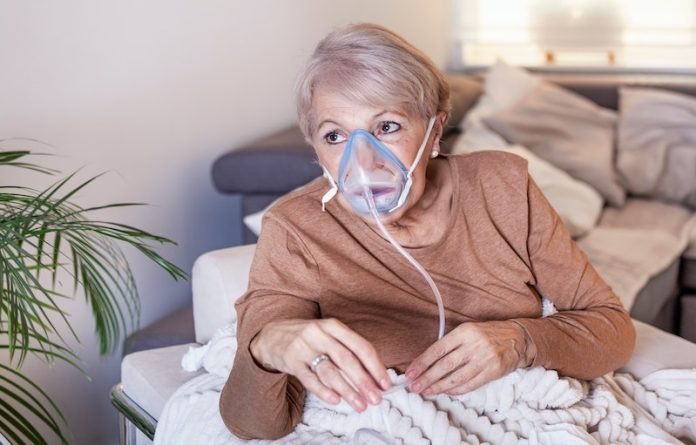
Respiratory syncytial virus, or RSV, is a respiratory virus that is a common cause of lower respiratory illness and is most recognized for causing annual epidemics that lead to an increase in hospitalizations of children in their first or second year of life.
However, it’s a common misconception that RSV is a mild respiratory illness in adults when, in fact, it can lead to symptoms as serious as those of influenza.
A Baylor College of Medicine infectious diseases expert explains.
According to Dr. Robert Atmar, professor of infectious diseases at Baylor, the consequences of lower respiratory tract illnesses such as RSV can be severe, particularly for adults over 65 and those who have chronic underlying lung disease, heart disease, or diabetes.
“One of the reasons that persons with these diseases are at higher risk is because of the underlying disease—the function of the heart, lungs, and immune system is already compromised and less able to handle the stress associated with the infection,” he said.
Historically RSV has been relatively predictable and usually occurs from October through March or April, but the COVID-19 pandemic disrupted this pattern.
This year, physicians saw an increase in RSV cases starting at the end of September and are hoping that it’s peaking now.
RSV is more commonly recognized in children because of its characteristic clinical findings such as bronchiolitis and the availability of diagnostic tests for pediatrics that are sensitive.
Adults are not often tested for RSV and, according to Atmar, only in recent years have molecular diagnostics become more available for use in adults.
RSV can cause respiratory illness characterized by cough, shortness of breath, runny nose and nasal congestion. Fever is less common but can occur.
It can start as an upper respiratory illness, like a cold, that moves to the chest as a chest cold associated with cough and possibly pneumonia.
Wheezing also may be a symptom in adults, particularly those with a chronic lung disease such as COPD or asthma.
Contact with an infected individual is the most common way that RSV is transmitted, so handwashing is very important.
Atmar also said that the measures we took to decrease the transmission of COVID-19 also impacted the spread of other viruses, so those measures, such as wearing masks or respiratory hygiene, also could help prevent the transmission of RSV.
While there is no specific treatment for RSV, Atmar recommends symptomatic therapy (treatment of symptoms) such as taking a decongestant for nasal congestion or antitussives for a cough.
News of a potential RSV vaccine for pregnant women is currently making headlines and Atmar said that by this time next year, there also may be a vaccine option for older adults.
“This is not necessarily just a mild infection in all adults.
It can be a very serious infection, particularly in older adults and those who have chronic heart and lung disease or diabetes and it’s for those reasons that vaccines are being developed for these at-risk persons.
If those vaccines become available it’s going to be important for those groups approved to take it, much like they take the flu vaccine,” Atmar said.
“It’s worth preventing if and when we have an effective vaccine available to do that, and we may have that within the next year or two.”
If you care about health, please read studies about antiviral drug that may block COVID-19 transmission, and durable coating can kill COVID virus, other germs in minutes.
For more information about health, please see recent studies about new face mask to deactivate COVID-19, and results showing flu and COVID-19 vaccines may increase heart disease risk.



